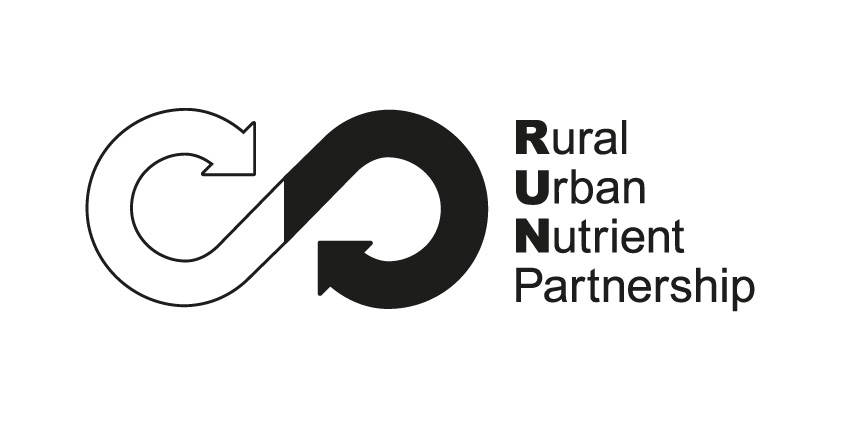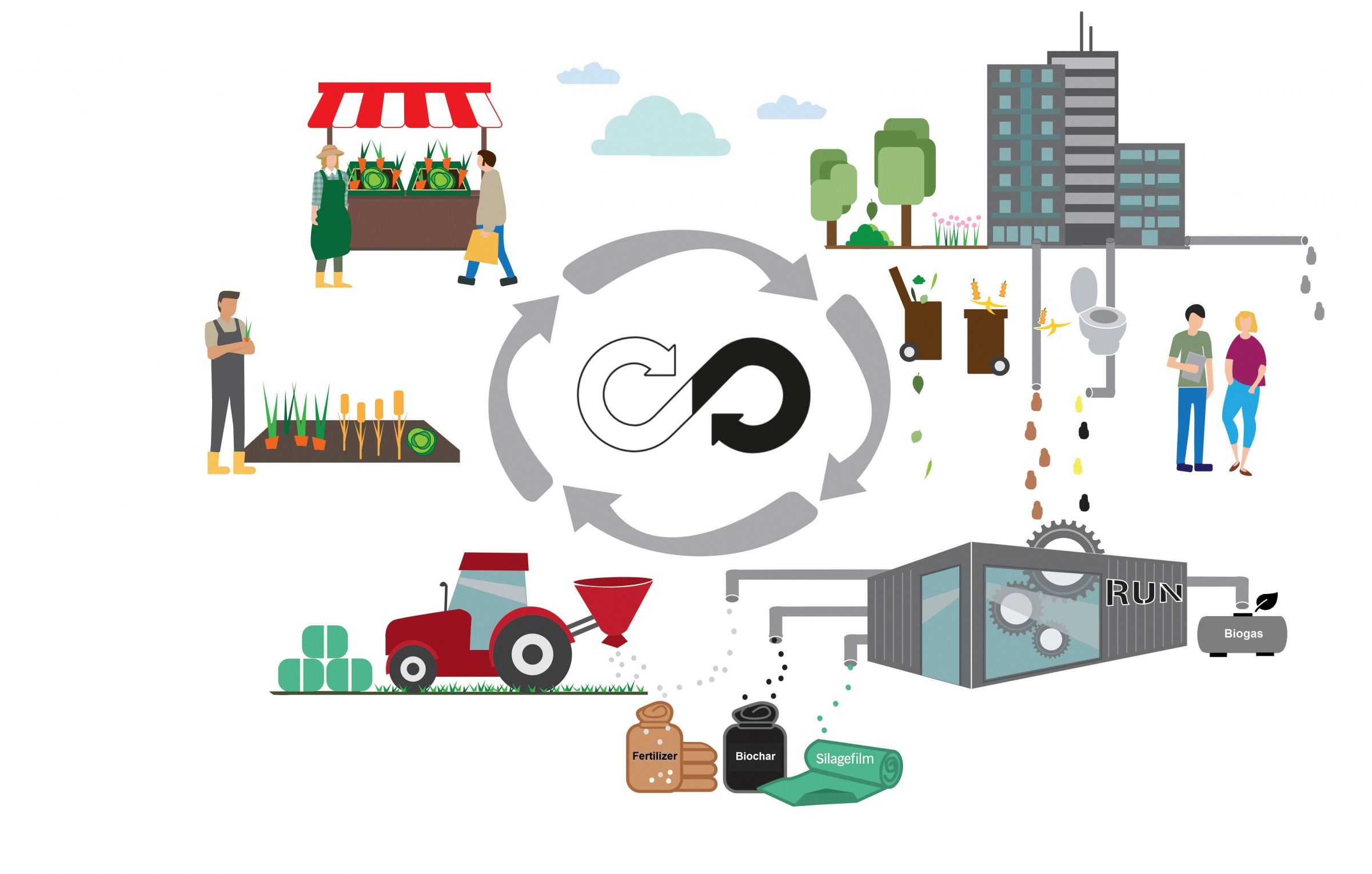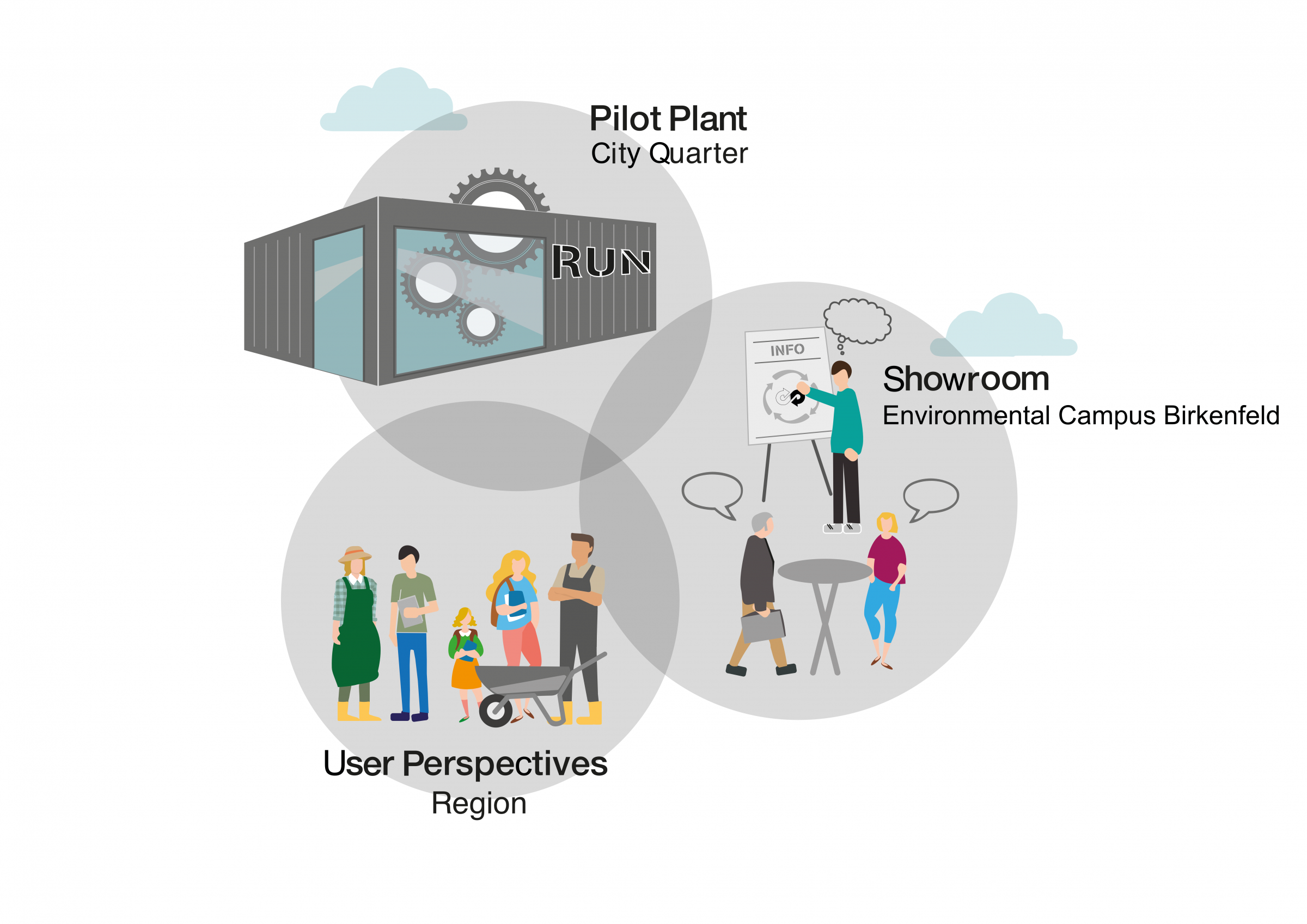Improving resource efficiency…
The efficient use and conservation of the resources available to us is indispensable for a sustainable future in terms of bioeconomic principles. In order to accomplish this, agriculture too will have to undergo a fundamental transformation. The recovery of nutrients from organic waste and municipal wastewater for the production of safe fertilisers can be part of the solution. However, both the required methods and social acceptance for this are lacking.
...and closing nutrient cycles
The objective of the RUN project (Rural Urban Nutrient Partnership) is to close the nutrient cycle between urban and rural regions. RUN links the development of new and innovative technologies, the analysis of material flow models, systemic scenario analyses and social science/participative methods to accomplish this. Nutrients from organic waste and wastewater flows are to be recovered and used for the production of safe and effective designer fertilisers for agriculture. Here the core element is that farmers and city dwellers enter into nutrient partnerships with the potential of anchoring a sustainable closed cycle in society.
A sandbox for experiments under real-time conditions
Establishing a large-scale pilot plant in an urban residential quarter of Heidelberg is planned in the course of the project. This will allow new technologies to be tested under real-time conditions with the participation of various players. Demonstrating the implementation of nutrient recovery from the urban environment to agriculture in a short cycle with the pilot plant is the goal. An experiential space established in addition will allow citizens to grasp and experience the research conducted in the RUN project. From nutrient production in households to reuse in agriculture, it presents and communicates all aspects of nutrient recycling. In order to generate solutions that are sustainable in society over the long term, the project’s social sciences component is dedicated to possible needs, requirements and obstacles related to products made from recycled waste and wastewater, and ensures the ongoing exchange of information between all participants.
Coordinator
Dr.-Ing. Sebastian Schmuck
University of Stuttgart
Institute for Sanitary Engineering, Water Quality and Solid Waste Management
Bandtäle 2
70569 Stuttgart
Tel.: +49(0) 711 685-65500
E-Mail: sebastian.schmuck@iswa.uni-stuttgart.de
www.run-projekt.de
Project partners
University of Stuttgart
- Institute for Sanitary Engineering, Water Quality and Solid Waste Management
- Institute for Landscape Planning and Ecology
TU Kaiserslautern
- Department for Resource Efficient Wastewater Technology
University of Hohenheim
- Institute for Farm Management
- Institute for Crop Science
- Research center "Global Food Security and Ecosystems"
University of Heidelberg
- Max-Weber-Institute for Sociology, Centre for Social Investment (CSI)
Karlsruhe Institute of Technology (KIT)
- Institute for Technology Assessment and Systems Analysis (ITAS)
Trier University of Applied Science
- Institute for Applied Material Flow Management (IfaS), Enviromental Campus Birkenfeld
Industry partners
- iat Ingenieurberatung für Abwassertechik GmbH, Stuttgart
Associated partner
- Thünen Institute Braunschweig, Institute of Agricultural Technology


